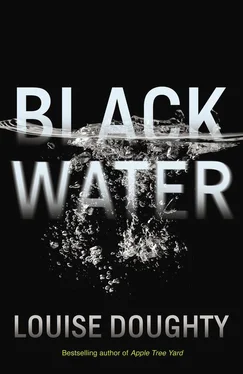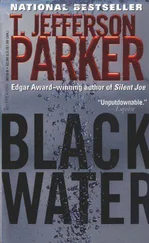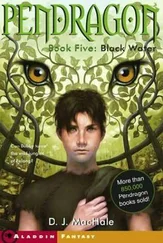Why was a journalist sending him messages on his emergency pager? Perhaps she was a client and keeping the tone light. He grabbed the trousers from the floor and pushed his hands into the pockets until he found a business card: Alison Rutgers, Asia Correspondent, Financial Times , and a local number.
When she answered the phone, she didn’t sound like a client about to request an emergency evacuation.
‘Hey, great to hear from you, how’s the head?’
He mimicked her tone. ‘Hmmm, well, let’s say it’s been better, how’s yours?’
She gave a little laugh. ‘It was pretty hard getting up this morning.’ And he knew instantly that she was not hungover at all — that however many mojitos they had drunk together the night before, she had been on a non-alcoholic variety, probably by saying quietly to the waiter, skip the rum in mine. He’d been caught out like that before. ‘Café Batavia mix them pretty strong when the owner’s having one of his party nights,’ she continued, ‘he’s an Aussie, think I told you? The real place is the Tanamur, though, can’t believe you haven’t been there yet.’ He was well aware of the Tanamur’s reputation, which was why he had steered clear. But he had confided in her last night that he’d never been? Who the hell was she and what did she want? ‘Listen,’ she said, ‘sadly this isn’t just a call to check you’re still alive.’
‘How did you get my pager number?’ he asked, cutting her off.
There was the briefest of pauses. ‘You gave it to me last night.’ He felt hot, and sick. ‘But listen. .’
‘I have nothing to say to you.’ He hung up.
Five minutes later, the pager, the highly confidential one reserved specifically for work emergencies, bleeped again. He called the Motorola number. This time, Alison’s tone was very different. ‘Hi John, me again, sorry if I disturbed you, look, I’ll call your head office in Amsterdam and do this officially. I’m just looking for a quote, attributable or otherwise, on the Institute’s evacuation plans, it’s the major banks we’re interested in, but I understand what you told me last night was off the record.’ Her sign-off was unmistakeably spiteful. ‘If you’re all tied up today, I’ll take it through official channels.’
Shit shit shit. He put his head in his hands. He could call her back. She would probably leave it an hour or so to see if he did. Then she would promise him anonymity in return for the information she needed. But the information would be traceable back to him: she knew that and she knew he knew it too. The Amsterdam office would be closed at this hour but the twenty-four-hour hotline monitored the regular office answering machine and if she left a message they might call her back straight away, head her off at the pass. Damage limitation. Did the bosses have any contacts at the FT that would kill the piece? His head reeled with solutions. Was she working on a feature or a news story?
He had no idea. He couldn’t remember her at all: a vague image, perhaps, a swoop of dark hair? A hand on his knee, at one point? He thought hard and a little came back to him, but only a little. He had hailed a car and gone to some of the hotel bars first, then headed to Kota. There were still curfews and cordons everywhere, but to his surprise Café Batavia with its photos of Hollywood stars in dark wooden frames covering the walls was still open and quite busy with an influx of journalists and operatives new to Jakarta. There was some kind of party night going on. Someone nudging his elbow, apologising. . He had turned. . A smile, that swoop of hair. .
He could just about remember her now: brown-eyed, small, vulnerable-looking. He couldn’t remember how long he had stayed or what he had said. He couldn’t remember how he had got home.
He had told Wahid he was going out on the streets, against protocol, to ask a few questions. Instead, it would appear that he had done the talking. If he had broken client confidentiality, the Institute would sack him on the spot: he was finished.
And then he thought to check his jacket pocket. The jacket was slung over the foot of the bed. The pockets were empty.
The taxi didn’t get much beyond Glodok — they were still several streets from Fatahillah Square — when they were forced to stop at a police cordon; official barriers, officers in white helmets. The one who approached the driver’s window had a whistle in his mouth and his hand already resting on the gun in his holster. He and the taxi driver had a hurried conversation.
‘Tell him I’m a journalist,’ Harper said from the back seat. ‘Tell him I just need to get through to the square, I left something at Café Batavia last night, it isn’t important but tell him, obviously, I’d be very grateful.’ If he wanted to try getting a bribe into the policeman’s hand, he would have to wind down the rear window.
The taxi driver was already putting the car into reverse as he shook his head. ‘Sorry, sir, no further.’
‘Okay, go back, then right, the end of the street and around.’
The driver reversed slowly back down the street.
After two more right turns, Harper said, ‘Pull up here.’
The driver did as he was bid but then sat with his hand on the gearstick, looking straight ahead, clearly not wanting to offend a customer. ‘Sir, I think good if I take you back to where you came from. Sir?’
‘I’ll get out here,’ Harper replied, lifting his backside so he could reach inside his trouser pocket for some money.
‘I don’t think that is good, sir,’ the driver replied, as he took the money, but Harper was already reaching for the door handle.
He took the backstreets, deserted but not cordoned: the roadblocks were to stop vehicles and large assemblies, not individuals. On foot, it was not hard to get to the square. Down one street, there was even an elderly lady calmly sweeping dried leaves and twigs into the ditch outside a crumbling, deserted-looking building, as if nobody had told her the city was in chaos. Most of the buildings were shuttered, though. People were still staying at home.
Fatahillah Square was deserted but for a single jeep outside the Jakarta History Museum. A few men lounged in it, smoking. Harper could see from across the square that Café Batavia was closed but he went up to it anyway, lifted a hand and pressed his nose against the glass. In the gloom at the back of the ground floor, he thought he saw movement, although it could just have been a reflection of some sort, but he banged on the glass anyway and rattled the doorknob. When he glanced behind him, he could see he had caught the attention of the young men in the jeep, who were watching him.
If any staff were inside Café Batavia, then they had no intention of opening up — but Harper knew in his bones he had come on a wild goose chase. What were the chances of the notebook being on the floor somewhere? Alison Rutgers was probably studying it right now, running a manicured finger down the list.
As he turned away from Café Batavia, one of the young men jumped down from the jeep, landing neatly with both feet together and bending at the knees, and began to walk casually across the square towards him. He turned left and walked swiftly but calmly towards the opposite corner. It was too far to walk all the way back and the sky was heavy and dark; another rainstorm was on its way. He would head south and hope for a cab somewhere beyond the cordons.
He was half an hour’s walk south of the square when he heard it, the unmistakeable clamour of a crowd with its blood up: it was a collective sound, both ancient and familiar, a mixture of shouts and calls, the clatter of things breaking, chanting. He stopped to listen: it sounded as though it was coming from the road parallel to the one he was on. He turned down a side street that linked the roads. He hadn’t eaten anything before he left the apartment and not a single stall or shop was open. His stomach was hollow. The gathering storm made the air close and humid. It was like breathing in soup.
Читать дальше












